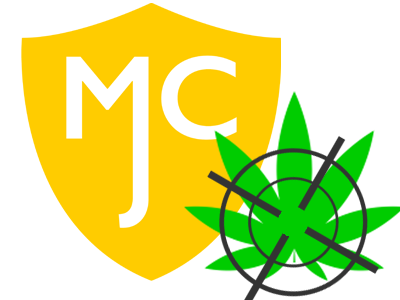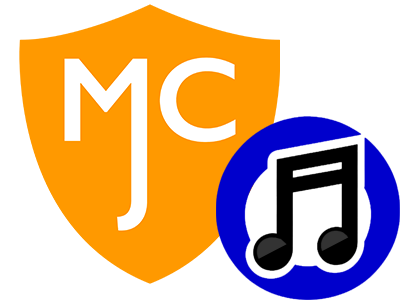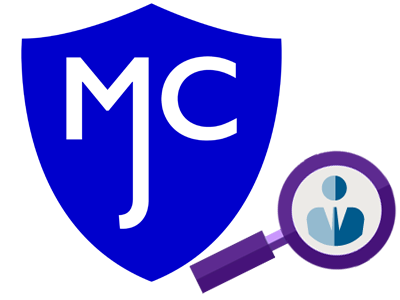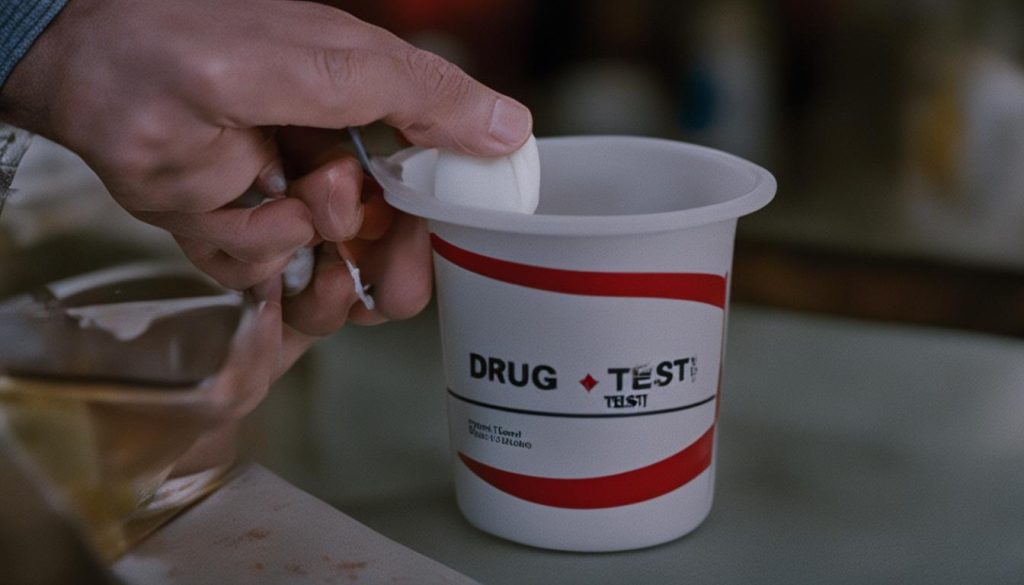
Using bleach to pass a drug test has become a popular myth among individuals seeking to manipulate the results of their drug screenings. However, it is essential to separate fact from fiction when it comes to this dangerous practice. In this article, we will delve into the truth behind using bleach as an adulterant in drug tests and its impact on drug detection.
- Bleach does not reliably produce false-negative results in drug tests.
- Adulterating urine samples with bleach leaves a marker indicating tampering.
- The use of bleach as an adulterant can have serious health consequences.
- Alternative adulterants, such as vinegar and drain opener, can also yield false-negative results.
- Urine substitution, dilution, synthetic urine, and masking products are deceptive methods with significant risks.
- Open communication, education, and seeking professional help are healthier alternatives to pass drug tests.
The Dangers of Bleach Adulteration
While there is a belief that using bleach can help pass a drug test, it is important to consider the potential dangers associated with this method. Ingesting bleach can cause serious burns and damage to the digestive tract. Additionally, using bleach as an adulterant can result in false-negative results for certain drugs, including MDMA. This can lead to a false sense of security and potentially negative consequences if drug use is not accurately detected. It is important to prioritize safety and integrity when it comes to drug testing.
“Using bleach as an adulterant can result in false-negative results for certain drugs, including MDMA.”
When individuals attempt to tamper with drug test results by using bleach, they expose themselves to serious risks. Ingesting bleach can lead to burns and severe damage to the digestive system, which can require extensive medical treatment. Moreover, relying on bleach as an adulterant can provide false-negative results, giving the user a misguided sense of passing the drug test when, in fact, drug use is still detectable. This can have lasting consequences in legal, professional, and personal contexts. It is crucial to understand the dangers and potential consequences of using bleach to tamper with drug test results.
The Effects of Ingesting Bleach
Ingesting bleach can have severe consequences on both physical health and overall well-being. The corrosive nature of bleach can cause chemical burns and damage to tissues in the throat, esophagus, and stomach. This can lead to pain, difficulty swallowing, and even internal bleeding. Immediate medical attention is necessary if bleach is accidentally ingested. Furthermore, the long-term effects of ingesting bleach can include scarring, narrowing of the throat or digestive tract, and increased susceptibility to infections. It is crucial to prioritize safety and avoid any practices that involve ingesting or exposing oneself to bleach.
The Risks of False Negative Results
Using bleach as an adulterant in a drug test can result in false-negative results, providing inaccurate information about an individual’s drug use. False negatives can give a misleading impression of sobriety, potentially enabling continued drug use or masking drug-related problems. This can lead to missed opportunities for intervention, treatment, or support. Moreover, relying on false negatives can have legal and professional consequences if drug use is discovered through other means. It is imperative to prioritize accuracy and honesty when it comes to drug testing, avoiding any deceptive practices that can compromise the integrity of the results.
| Concerns | Risks |
|---|---|
| Physical harm from ingesting bleach | Severe burns and damage to the digestive tract |
| False-negative results | Potentially negative consequences if drug use is not accurately detected |
The Effectiveness of Bleach on Different Drugs
The effectiveness of using bleach as an adulterant can vary depending on the drug being tested. While some believe that bleach can produce false-negative results for THC metabolites, its impact on other drugs may differ. It is important to consider the specific drug and its interaction with bleach.
For example, bleach on a finger or the presence of bleach in a urine sample can indicate possible adulteration. However, it is crucial to note that the effectiveness of bleach as an adulterant can be influenced by various factors such as the concentration of bleach used and the specific drug being tested for.
Further research is needed to fully understand the extent to which bleach can interfere with accurate detection of different drugs in urine samples. It is important for individuals seeking to deceive drug tests to be aware of the limitations and risks associated with using bleach as an adulterant.
Table: Effectiveness of Bleach on Different Drugs
| Drug | Effectiveness of Bleach Adulteration |
|---|---|
| THC Metabolites | May potentially produce false-negative results |
| Other Drugs | Impact of bleach adulteration may vary |
The Dangers of Alternative Adulterants in Drug Testing
Aside from bleach, individuals may attempt to use other substances as adulterants to mask drug metabolites and deceive drug tests. Two commonly used alternative adulterants are vinegar and drain opener, each with their own effects on drug testing accuracy.
Vinegar as an Adulterant
Vinegar is a household ingredient that is often touted as a natural way to cleanse the body and alter drug test results. However, using vinegar as an adulterant can lead to false-negative results for certain drugs, including MDMA. Vinegar’s acidic properties may interfere with the detection of drug metabolites in urine samples, giving a false impression of sobriety. It is important to note that relying on vinegar to pass a drug test is not a foolproof method and can have consequences if detected.
Drain Opener as an Adulterant
Another alternative adulterant individuals may turn to is drain opener. This substance, typically used to unclog drains, can be added to urine samples to interfere with drug detection. Similar to vinegar, drain opener can produce false-negative results for various drugs. However, it is crucial to understand that using drain opener or any other substance to tamper with a drug test is not only unethical but can also have serious legal and professional consequences if discovered.
The Risks and Consequences
Using vinegar, drain opener, or any other alternative adulterant to mask drug metabolites in a drug test is a risky endeavor. Employing these methods not only undermines the integrity of the testing process but also puts individuals at risk of facing severe consequences if detected. It is essential to prioritize honesty and seek healthier alternatives, such as open communication, education, and professional help for substance abuse concerns.
| Adulterant | Effect on Drug Testing Accuracy |
|---|---|
| Vinegar | Can produce false-negative results for certain drugs, including MDMA |
| Drain Opener | May result in false-negative results for various drugs |
The Risks of Urine Substitution
When it comes to passing a drug test, some individuals may resort to urine substitution as a deceptive method. This involves using a clean urine sample from another person in place of their own. While urine substitution may seem like a viable solution, it comes with significant risks and is not a foolproof method.
Testing laboratories have advanced techniques to detect urine sample tampering, making it difficult to deceive the system. They can identify temperature variations, differences in chemical composition, and even the presence of waterborne contaminants in the sample. This means that using someone else’s urine carries the risk of being caught, resulting in severe legal and professional consequences.
Urine analysis plays a crucial role in drug testing, and its integrity must be maintained. Employing deceitful tactics like urine substitution not only undermines the reliability of the process but is also unethical. To ensure accurate results and avoid dire consequences, it is essential to prioritize honesty, open communication, and seek help if substance abuse is a concern.
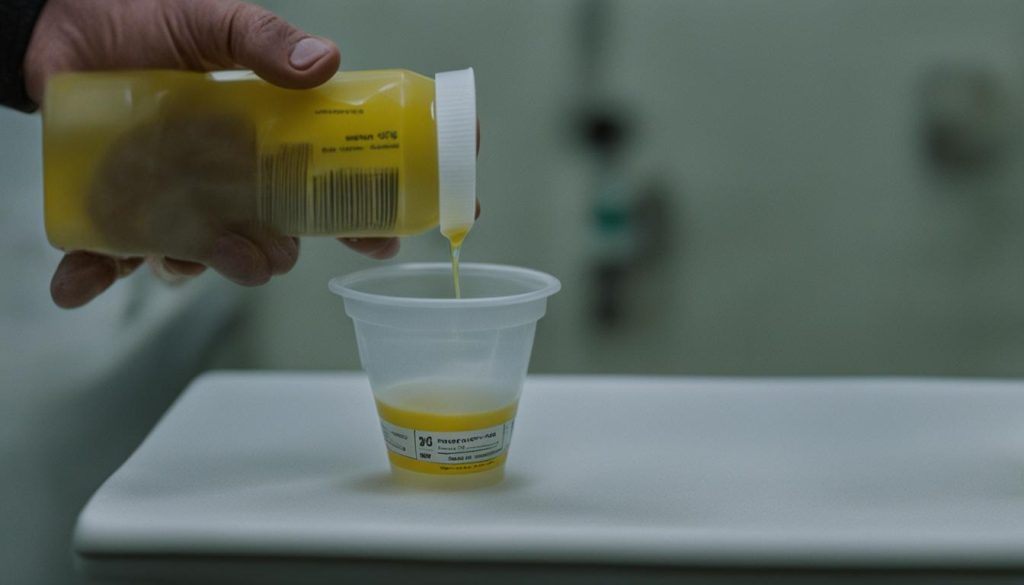
The Risks of Urine Substitution:
| Risks | Consequences |
|---|---|
| Detection by laboratories | Severe legal and professional consequences |
| Compromised integrity of urine analysis | Undermines the reliability of drug testing |
| Ethical concerns | Deceitful practice with potential health risks |
The Risks and Limitations of Dilution as a Strategy to Pass a Drug Test
Dilution is a commonly employed method used to pass a drug test by reducing the concentration of drugs in urine below the threshold of detection. This technique involves consuming excessive amounts of water or using substances like Jell-O or gelatin to dilute the urine sample. While dilution may appear to be an effective strategy, it comes with its own set of risks and limitations that individuals should be aware of.
One of the primary risks associated with dilution is the potential for flagging. Laboratories are well aware of dilution tactics and have implemented measures to identify diluted samples. They can detect dilution through various means, including specific gravity tests, creatinine levels, and pH measurements. If a sample is flagged as diluted, further analysis may be conducted, potentially leading to additional scrutiny.
To avoid dilution flagging, individuals may attempt to manipulate these factors by consuming vitamins and diuretics to give the appearance of a less diluted sample. However, such methods are unreliable and can pose health risks. It is essential to recognize that tampering with the integrity of a drug test is unethical and can have severe consequences if discovered.
| Pros of Dilution | Cons of Dilution |
|---|---|
|
|
Note: The table above provides a summary of the pros and cons of dilution as a strategy to pass a drug test.
It is important to emphasize that while dilution may seem like a plausible solution, it is not a foolproof method for passing a drug test. Laboratories continue to refine their detection techniques, making it increasingly difficult to outsmart the system. Instead of relying on deceptive practices, it is crucial to address substance abuse concerns through open communication, education, and seeking professional help. By prioritizing integrity and well-being, individuals can make more meaningful progress towards a drug-free lifestyle.
Synthetic Urine as a Deceptive Method
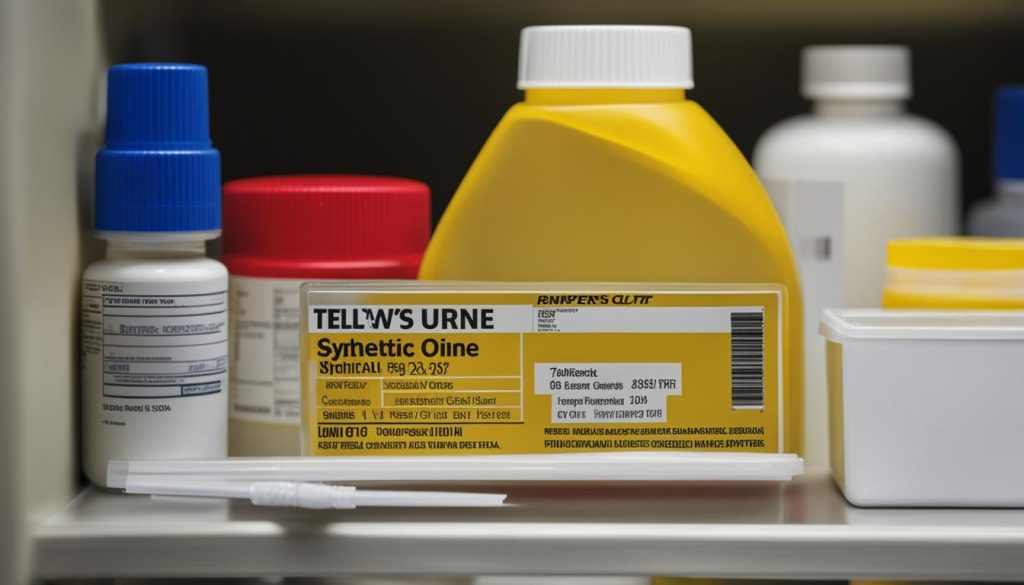
Synthetic urine is a product designed to mimic real urine and is often used as a deceptive method to pass drug tests. It contains chemicals that can block the detection of drugs in the sample. Synthetic urine is sold as a powder that is mixed with water and often comes with heating pads to maintain the temperature of the sample.
While synthetic urine may provide temporary relief from a positive drug test, it can be easily detected by modern testing facilities due to differences in chemical composition and temperature. Using synthetic urine is not without risks, and the consequences of being caught can be severe.
Table: Comparing Synthetic Urine and Real Urine
| Synthetic Urine | Real Urine | |
|---|---|---|
| Chemical Composition | Contains chemicals to mask drug use | Naturally occurring substances |
| Temperature | Maintained with heating pads | Varies based on body temperature |
| Smell | May lack natural odor | Has a distinct odor |
| Color | May lack natural color variations | Varies based on hydration levels |
As the table shows, there are several key differences between synthetic urine and real urine. These differences can raise suspicions during drug testing and lead to the detection of deceptive practices. It is essential to understand that the use of synthetic urine is not a reliable or safe method to pass a drug test.
Masking Products and False Negative Results
When it comes to passing a drug test, some individuals may resort to using masking products in the hopes of achieving false-negative results. These products are designed to interfere with drug detection, potentially masking the presence of drugs in the sample. However, it’s important to understand the risks and limitations associated with these chemical adulterants.
Making the choice to use masking products, such as bleach, vinegar, detergents, or aspirin, comes with significant consequences. Not only can these products lead to false positives and inaccurate test results, but they can also pose potential health risks. For example, using bleach as a chemical adulterant carries the danger of bleach toxicity, which can result in serious burns and damage to the digestive system.
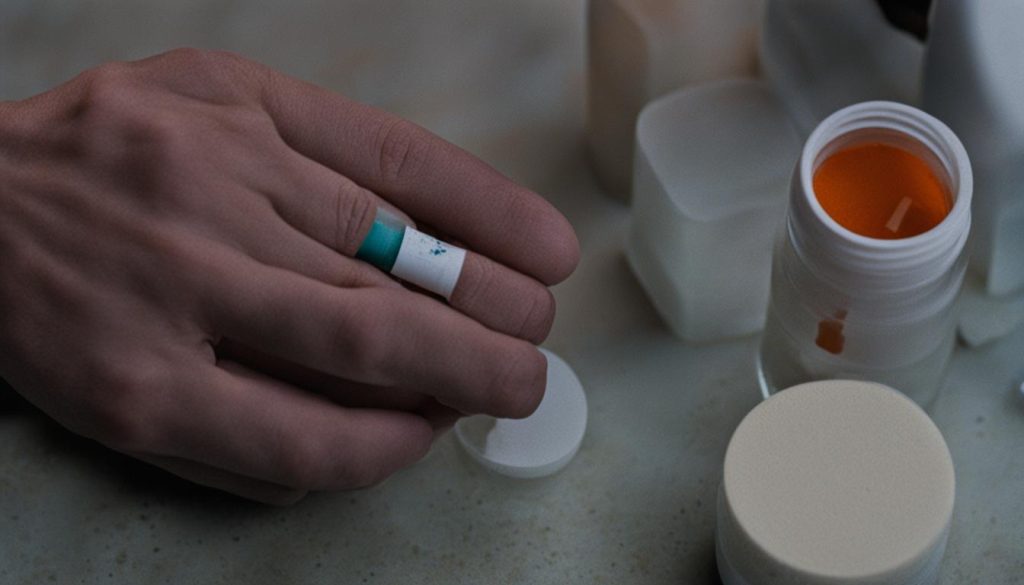
It is crucial to understand that the use of masking products is unethical and can have serious consequences if detected. Modern testing facilities are equipped to detect the presence of these adulterants through advanced analytical methods. Engaging in deceptive practices can not only compromise the accuracy of drug testing but also result in legal and professional ramifications.
The Risks of Using Masking Products:
- False-negative results: Masking products can interfere with drug detection, potentially leading to false-negative results where drugs are present but go undetected.
- False positives: Some masking products can create false positives, indicating the presence of drugs even when the person is drug-free.
- Inaccurate test results: Chemical adulterants can disrupt the integrity of the drug testing process, compromising the accuracy of test results.
- Health risks: Using masking products, such as bleach, can have severe health consequences, including bleach toxicity and damage to the digestive system.
- Ethical concerns: Engaging in deceptive practices undermines the integrity of drug testing and can result in legal and professional consequences.
It is important to prioritize integrity and choose healthier alternatives when it comes to drug testing. Open communication, education, and seeking professional help for substance abuse concerns are crucial steps towards a safer and more supportive environment.
Strategies to Avoid Drug Detection
When it comes to avoiding drug detection, there are various strategies that individuals may consider. One approach is to delay the drug test, giving the body time to metabolize and eliminate any substances. Some drugs can be detected in the body for up to 72 hours, so refraining from drug use within this timeframe may increase the chances of passing the test. However, it is important to note that this strategy is not foolproof, as detection times can vary depending on factors such as the type of drug and individual metabolism.
Another strategy to avoid drug detection is to explore options for test avoidance. This could involve seeking out alternative testing methods or finding ways to delay the test until drugs are no longer detectable in the body. It is crucial to note that test avoidance is not a recommended or ethical approach. Drug testing serves important purposes such as workplace safety and monitoring substance abuse. Engaging in deceptive practices can have serious legal and professional consequences if discovered.
Ultimately, the most effective strategy for avoiding drug detection is to refrain from drug use altogether. This not only eliminates the need to manipulate test results but also prioritizes health, safety, and compliance with laws and regulations. Open communication, education, and seeking professional help for substance abuse concerns can provide the necessary support to live a drug-free lifestyle.
Strategies to Avoid Drug Detection:
- Delaying the drug test
- Refraining from drug use within the detection window
- Exploring options for test avoidance
- Choosing a drug-free lifestyle
We understand the desire to avoid the consequences of a positive drug test, but it is important to remember that the safest and most ethical approach is to refrain from drug use entirely. Seeking help and support is crucial if substance abuse is a concern, as there are resources available to assist in overcoming addiction and maintaining a healthy, drug-free life.
| Strategy | Effectiveness | Risks |
|---|---|---|
| Delaying the drug test | Can increase chances of passing if drugs are no longer detectable | May face legal and professional consequences if discovered |
| Refraining from drug use within the detection window | Reduces the likelihood of drug detection | Not foolproof, detection times can vary |
| Exploring options for test avoidance | Potentially avoids the test altogether | Not recommended or ethical, can have serious consequences if discovered |
| Choosing a drug-free lifestyle | Eliminates the need for manipulation and deception | Prioritizes health, safety, and compliance |
It is important to arm ourselves with knowledge and make informed decisions when it comes to drug testing. By understanding the risks and consequences associated with deceptive practices, we can prioritize integrity, safety, and a commitment to a drug-free lifestyle. Delaying drug tests, refraining from drug use, and seeking professional help are more sustainable and responsible strategies for living a healthy, substance-free life.
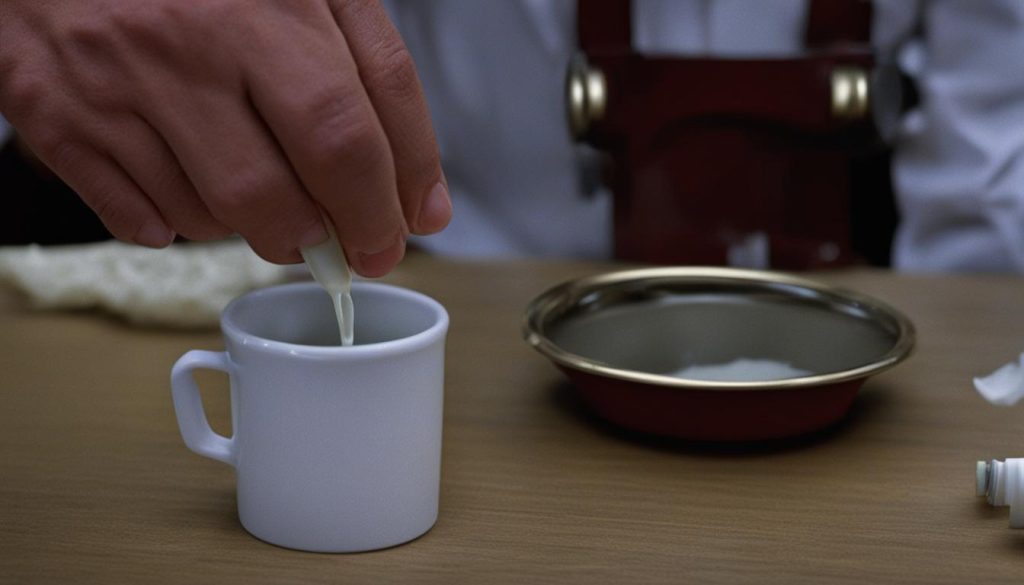
Educating Teens and Creating a Supportive Environment
Educating teens about the dangers of drug use, the importance of maintaining a drug-free lifestyle, and the risks associated with deceptive practices is crucial. As responsible adults, it is our duty to provide parental guidance and foster an open dialogue with our teens. By creating a supportive and non-judgmental environment, we can ensure that our teens feel safe discussing their struggles and seeking help if substance abuse is a concern.
One effective way to educate teens is through open discussions about the consequences of drug use. By providing accurate information and sharing real-life examples, we can help them understand the potential risks and make informed decisions. It is important to emphasize the negative effects of drugs on physical and mental health, as well as the impact it can have on personal relationships, academic performance, and future opportunities.
In addition to open dialogue, there are various resources available to support teens in their journey towards a drug-free life. Parents can seek guidance from healthcare professionals, counselors, and community organizations specializing in substance abuse prevention and treatment. These resources can provide valuable information, counseling, and support systems for both teens and their families, helping them navigate the challenges of drug prevention and recovery.
| Resources for Help | Description |
|---|---|
| National Helpline for Substance Abuse and Mental Health Services | An anonymous and confidential helpline that provides information, referrals, and support for individuals and families facing substance abuse and mental health issues. |
| Partnership to End Addiction | A nonprofit organization that offers a wide range of resources, including guidance for parents, prevention tools, treatment options, and support for families affected by addiction. |
| Local Counseling Centers | Local counseling centers often provide specialized services for teens struggling with substance abuse. These centers offer counseling, therapy, and support groups. |
| School-based Prevention Programs | Many schools have prevention programs in place that educate students on the dangers of drug use and provide resources for help. Encouraging teens to engage in these programs can be highly beneficial. |
Conclusion
In conclusion, it is important to recognize the risks and limitations associated with attempting to pass a drug test through deceptive means. Using bleach as an adulterant is not a reliable or safe method, as it can lead to false-negative results and potential harm, including serious burns and damage to the digestive tract. Other deceptive methods such as urine substitution, dilution, synthetic urine, and masking products also carry their own risks and can result in inaccurate test results, false positives, and legal and professional consequences.
Instead of resorting to these risky practices, we encourage individuals to prioritize integrity and explore healthier alternatives. Open communication, education, and seeking professional help for substance abuse concerns are essential. By fostering supportive environments and engaging in honest conversations, we can empower teens to make informed decisions and access the necessary support and resources for recovery.
Passing a drug test should not be the ultimate goal. Rather, our focus should be on promoting a drug-free lifestyle and ensuring the well-being and safety of individuals. By addressing the underlying issues that lead to drug use and providing guidance and support, we can work towards creating a healthier and happier future for our youth.
FAQ
Can using bleach help me pass a drug test?
No, using bleach as an adulterant for a drug test is not reliable or safe. It can lead to false-negative results and risks involving serious burns and digestive damage.
What are some alternative adulterants used to mask drug metabolites?
Some commonly used alternative adulterants include vinegar, drain opener, and masking products like bleach, detergents, or aspirin.
What are the risks of urine substitution?
Urine substitution, using someone else’s urine to replace your own sample, is not only unethical but can also have severe legal and professional consequences if detected.
How does dilution as a strategy work to pass a drug test?
Dilution involves consuming large amounts of water or using substances like Jell-O or gelatin to lower the concentration of drugs in urine. However, laboratories are aware of dilution tactics and may flag diluted samples for further analysis.
Can synthetic urine help me pass a drug test?
While synthetic urine may provide temporary relief from a positive drug test, it can be easily detected by modern testing facilities due to differences in chemical composition and temperature.
What are masking products and how do they affect drug test results?
Masking products are substances or additives used to alter the results of a drug test. They can interfere with the detection of drugs in the sample, but they can also lead to false positives, inaccurate results, and potential health risks.
Can delaying a drug test help me avoid detection?
Delaying a drug test and refraining from drug use for a certain period can increase the likelihood of passing, as some drugs can metabolize and leave the body within 72 hours. However, these strategies are not foolproof and can still have potential risks and consequences.
How can I educate teens about drug testing risks?
It is crucial to prioritize open communication, education, and creating a supportive environment where teens feel safe discussing their struggles. Parents, caregivers, educators, and other adults involved in their lives should provide resources for help if substance abuse is a concern.







